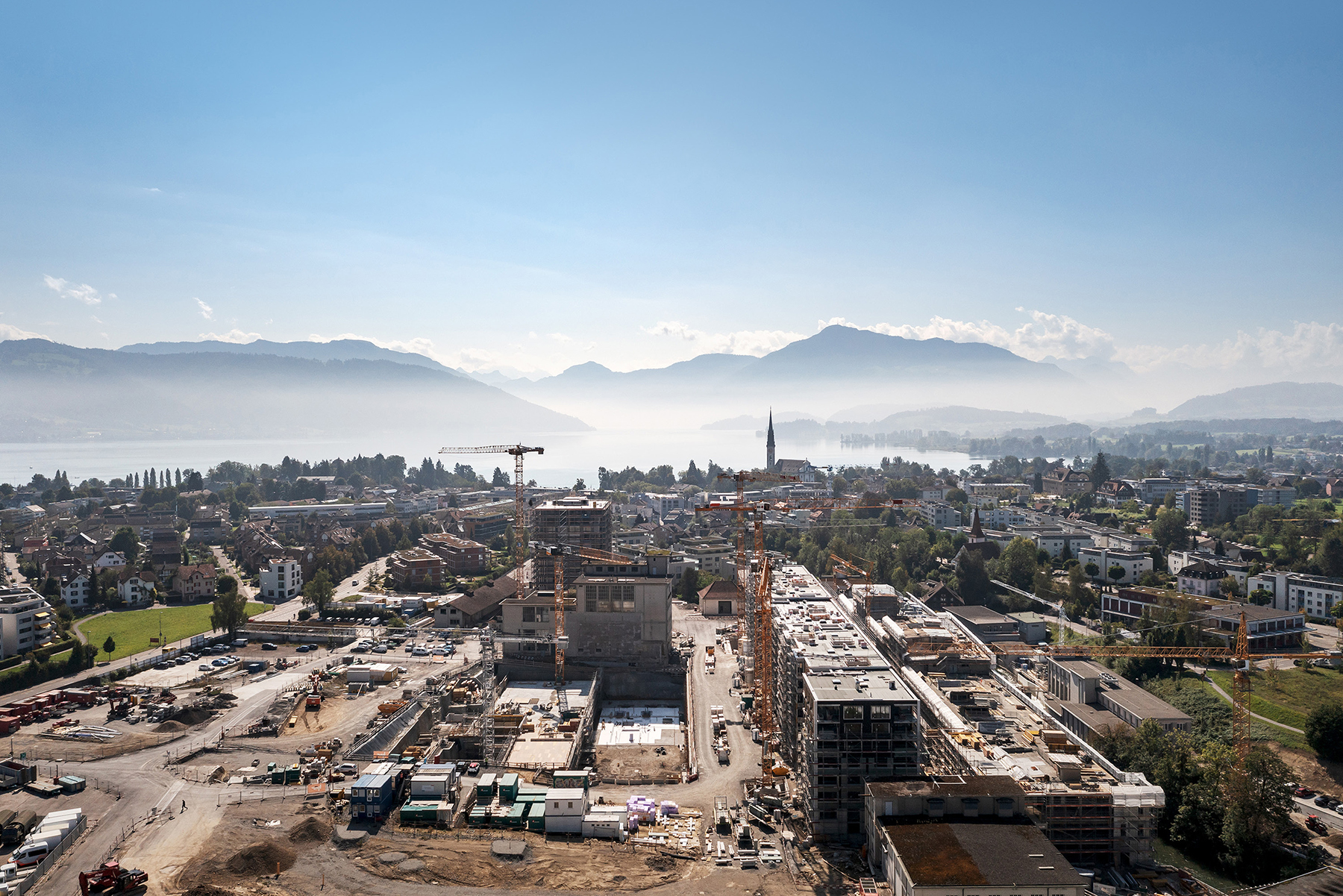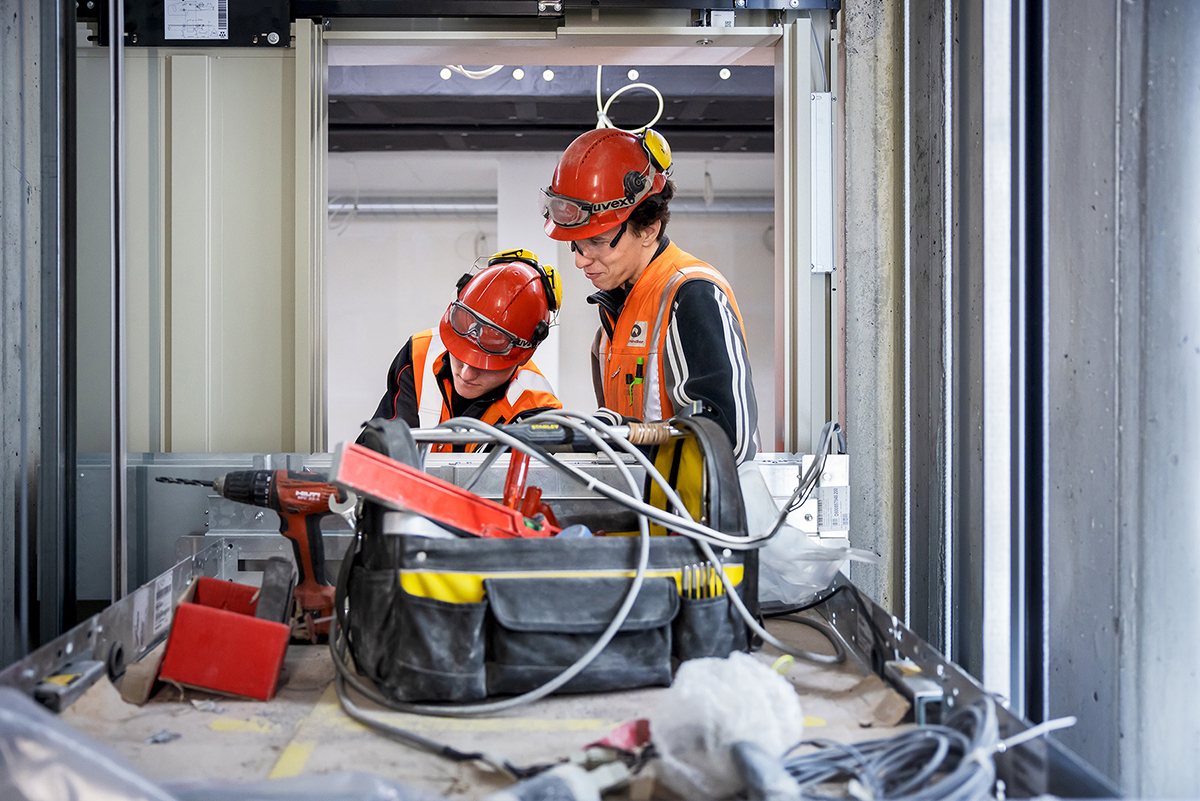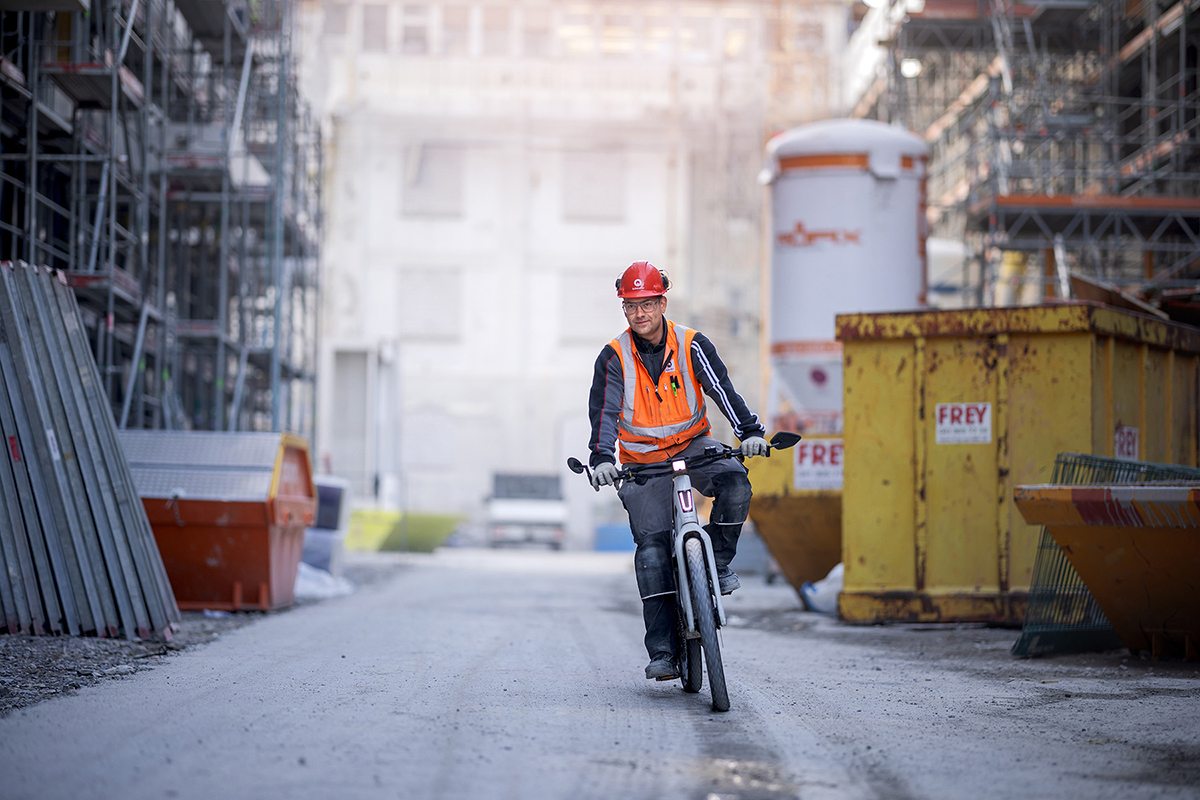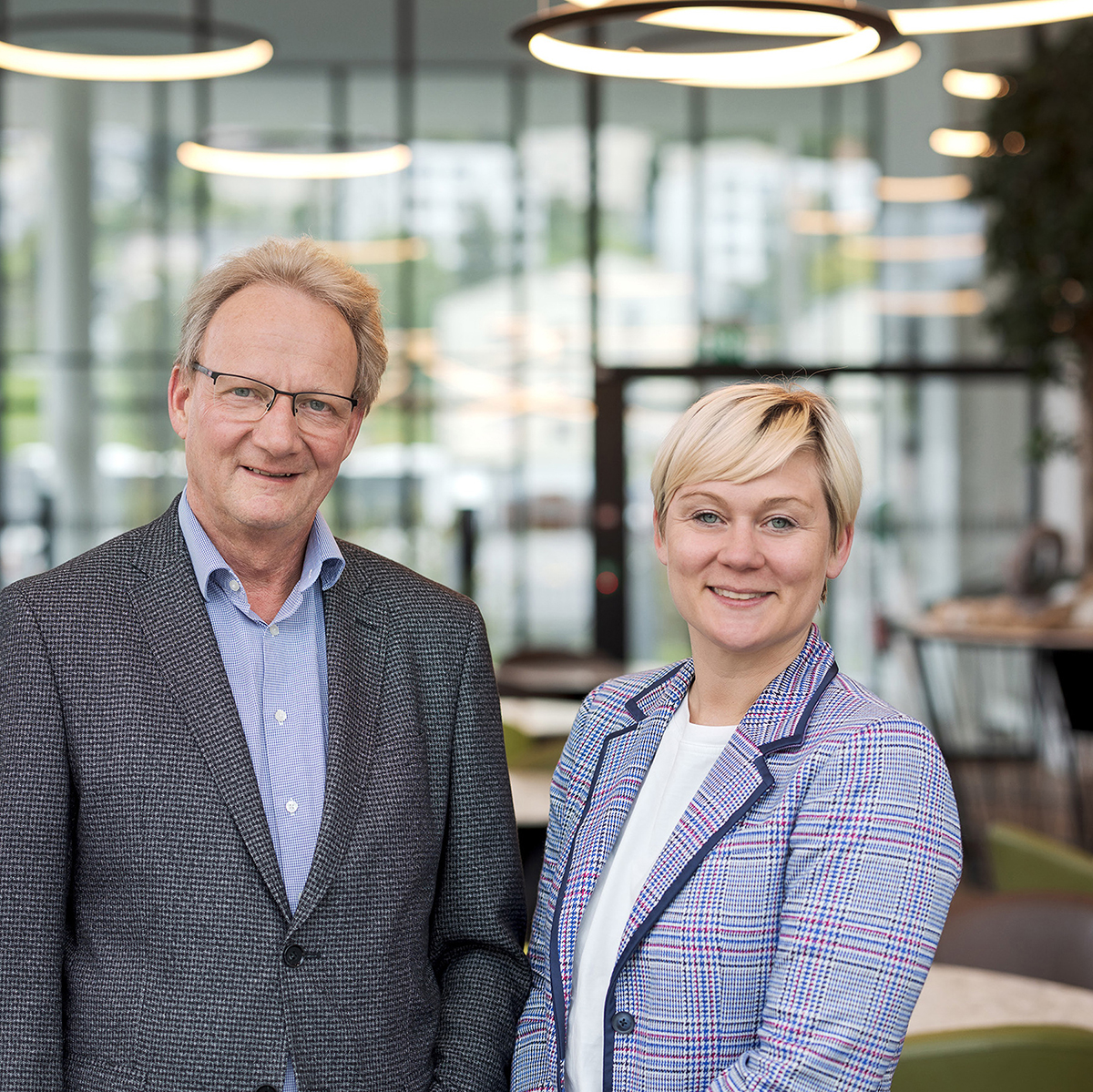Papieri site, Cham, Switzerland
A new chapter – creating the future

The Papieri site in Cham, Switzerland, where Cham Group produced paper for 360 years, is now being transformed into apartments that will house 2 000 residents and workspaces for 1 000 office workers by 2035. Schindler is supplying all of the elevators for this fusion of treasured historical buildings and spectacular new builds.
It is 6.00 a.m. The path is clear. There are no cement mixers blocking the vast construction site, no armies of workers walking up and down the scaffolding wrapping around the 12-story buildings. Schindler Project Manager Jonas Wyrsch seizes the opportunity: he arranges for the elevators for the first phase of the Papieri Cham development to be delivered in the early morning.
Installation engineers and apprentices are standing ready when a delivery truck drives up. Large wooden crates are stacked atop each other in the loading area, laden with valuable contents: components for Schindler elevators. A forklift brings the crates to the building’s entrance. As soon as the materials are unloaded, a team of Schindler specialists unpacks the elevator parts before lining them up for assembly. The packaging is collected the same day for recycling.

The 11-hectare site that once housed the paper mill, on the banks of the River Lorze and not far from Lake Zug, will be home to 2 000 people and provide workspaces for a further 1 000. To give them seamless access to their apartments and offices, Schindler is installing elevators from its 3000 and 5500 Schindler series. The new Papieri Cham, with its five high-rise buildings, is so large that Cham Group is having the construction spread over six phases. This allows the Cham commune to put in place the infrastructure needed for the new town. When the major project is completed 15 years from now, a total of 87 Schindler elevators will be serving the needs of the buildings’ occupants.
Sustainable construction is a must nowadays. The Papieri Cham development will be compatible with the “2 000-watt society” with an innovative, CO2-neutral renewable energy system in operation. The ground floors of the two high-rise buildings will house one of the largest creches within the commune. With the longevity and energy efficiency of its products, Schindler is demonstrating its ability to address environmental and sustainability issues: the elevators dating back to the 1960s that were in the paper factory’s old administrative building had not been used for several years. They have been brought back into service now, at the start of the first phase of the construction project. Now in perfect working order, they will continue to service the building for another ten years until the administrative building undergoes a full renovation.

Schindler employees are serious about sustainable mobility. Jonas Wyrsch drives to the construction site in his electric car, while lead installations engineer Elias Hochstrasser travels by e-bike – right up to the elevator shaft. Because he is fast and uses few resources, he’s become a role model for the installation engineers and apprentices working on-site.
As a sign of trust in its apprentices, Schindler is giving them the opportunity to help bring this prestigious project to life. Their direct supervisor Hugo Halter is particularly pleased about this: “I am very proud of the great work being done by our apprentices. We are receiving very positive feedback about their performance.”
How important was it for Schindler to win the contract for the Papieri development? Luca Rainone, Sales Manager at Schindler’s Lucerne branch, is still delighted about the successful bid months afterwards: “It gives us certainty – allowing us to plan the deployment of our installation engineers. This will also generate years of revenue and expand our portfolio. But there is also an emotional side. We were selected as the overall elevator partner and that is something we can all be proud of.” More than 1 700 items were included in the calculation of the tender. To manage this complex process, Luca Rainone was able to count on the expertise and support of the local Schindler team. He says: “You have to demonstrate to the building owner that you are really interested in the project and see yourself as part of it. We think along the same lines and act as a sparring partner to ensure the best possible execution of the project.”

Schindler’s on-site construction office is the best testimony to this commitment. The building owner and general contractor can speak directly to Installation Supervisor Michael Huser and Project Manager Jonas Wyrsch at any time. Jonas Wyrsch says: “The Papieri is a cool project. I am looking forward to seeing the end result. The elevators do not seem that spectacular at first glance, but the overall project is amazing. I like coming to the construction site because this is where old meets new.”
The job profile of an elevator installation engineer has changed significantly and is now more diverse – and therefore more interesting. The smartphone has been the real game changer. Nowadays, installation instructions are only available digitally and smartphones are used to put elevators into operation. This is an advantage for the digital natives who make up the current generation of apprentices.
Does this mean that installation engineering is no longer a man’s field? Bruno Wicki, Head of Professional Training at Schindler, says: “For 15 years, we have been trying to make installation engineering attractive to young women. Admittedly, we have had limited success so far, but mixed teams would do us good.”
Schindler is training around 320 apprentices in Switzerland, including 100 elevator installation engineers. How does Schindler inspire young people to pursue a career in the industry? Andrea Bachmann, Head Human Resources Schindler Professional Training, says: “Career fairs are one example. We try to promote an interest in a trade among young people and their parents. Many of them don’t even know that they can combine a career as an installation engineer with a vocational “Matura” diploma. We show young people the future opportunities and career prospects available to them – also in an international context. Schindler is a responsible employer. We support the development of our apprentices and put them to the test.”